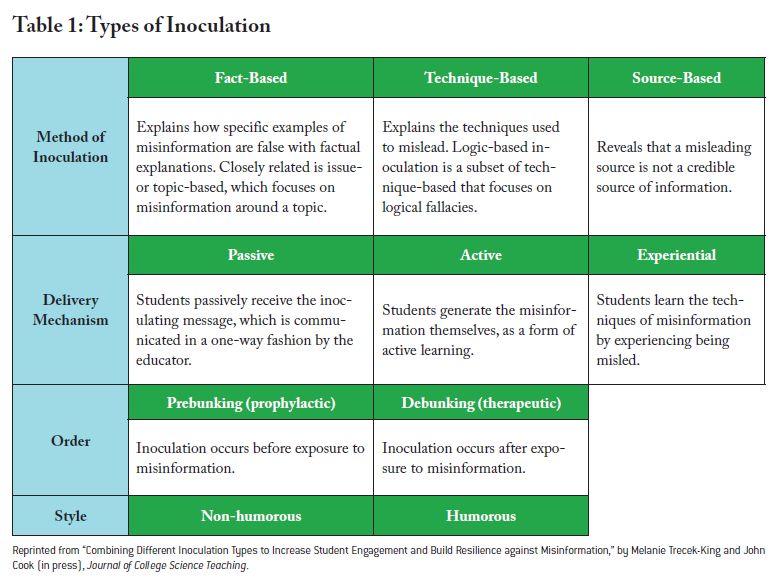We are drowning in misinformation. From celebrities selling their favorite diets and supplements online, to fringe medical “professionals” hawking pseudoscientific treatments on social media, to conspiracy theorists enticing followers down the rabbit hole on youtube, it’s nearly impossible to avoid exposure. The spread of misinformation has gotten so out-of-control that experts are calling it an infodemic.
We use information to make decisions about everything from our health to how we vote, so being misled by misinformation can cause real harm. Not only is someone usually trying to sell us something, falling for fake “cures” can literally be deadly.
While protecting ourselves from misinformation is essential, trying to debunk each and every false claim after it pops up can feel like an overwhelming and endless game of Whac-A-Mole. (Who has the time? Or the energy?)
The secret to protecting yourself from misinformation: A healthy mental immune system.
Thankfully, science has found a solution: inoculation theory. Similar to how a vaccine builds immunity to a pathogen by exposing our bodies to a weakened form of the pathogen, we can build immunity to misinformation by exposing our minds to a weakened form of misinformation along with techniques to resist the persuasion.
Basically, instead of debunking, inoculation pre-bunks…and in the process it trains our mental immune system to identify (and therefore not fall for!) misinformation.
Inoculations can be either fact-based or logic-based. (A third, less studied, type of inoculation is source-based.) Fact-based inoculation corrects misinformation with factual explanations, and is therefore limited to the context of that particular topic. Logic-based inoculation explains the logical fallacies or rhetorical techniques that were used to mislead, providing resistance against the same techniques in different types of misinformation. One logic-based approach uses parallel argumentation, which transplants the flawed logic of a misleading argument into an analogous – and often extreme – situation. This strategy lends itself well to humorous arguments and is therefore used regularly by late-night comedians to debunk political misinformation.
Inoculation can also be either passive or active. Passive inoculation occurs when the facts or techniques used to mislead are explained to the audience, while active inoculation builds immunity by getting people to actively create the misinformation themselves.
Inoculation can also be either passive, active, or experiential. Passive inoculation occurs when the facts or techniques used to mislead are explained to the audience, while active inoculation builds immunity by getting people to actively create the misinformation themselves. (John Cook and I recently proposed an additional delivery mechanism, experiential inoculation, in which students learn the techniques of misinformation by experiencing being misled.)

A great way to learn how to spot misinformation is to create it.
Imagine a young child watching a magic show for the first time. Without any prior knowledge, the tricks could really look like magic! To convince the child there was no magic involved, one could explain how the tricks were done. But the best way would be to teach them how to perform the tricks themselves. (Or as Mark Twain quipped, “A man who carries a cat by the tail learns something he can learn in no other way.”)
I’m a big fan of active inoculation, and was using it in my classes before I even knew what it was. It’s fun and engaging…and effective! But you don’t have to be an educator to reap the benefits and protect yourself from being persuaded by misinformation.
Below are examples of articles, assignments, and games that use active inoculation:
- How to sell pseudoscience in 9 easy steps: Protect yourself against potentially harmful health pseudoscience by learning the techniques used to sell it.
- Learn to be a psychic with these 7 tricks: Do you want to wow your friends and family with your psychic abilities? It’s not supernatural… it’s cold reading!
- Wake up, Sheeple!: In this fun critical thinking activity, students learn to recognize the characteristics of conspiracy theories by making their own.
- Please don’t fail me: Looking for a fun way to teach critical thinking, argumentation and logical fallacies? Have students create misinformation using humor!
- Cranky Uncle: The Cranky Uncle game uses cartoons and critical thinking to fight misinformation. The game was developed by Monash University scientist John Cook and is now available for free on iPhone and Android. (The Teacher’s Guide is available here.)
- Bad News: The Bad News game confers resistance against bad online information by putting players in the position of the people who create it. (Learn more about the research behind the game here.)
- Go Viral: New online infodemic game shows how to spot coronavirus misinformation in 5 minutes. Based on Cambridge University pre-bunking research.
- Harmony Square: A short, free-to-play online game in which players learn how political misinformation is produced and spread.
The above list is just the tip of the iceberg. For example, if you wanted to inoculate yourself (or your students) against shows like Ghost Hunters, you could learn how to create ghost photos or haunted houses! If it’s crop circles you’ve been wondering about, figure out how to make geometric patterns in fields. You could hold seances or learn to read minds or bend spoons… the possibilities are limitless.
In short, to know how the Wizard performs his tricks, look behind the curtain. Then learn to do them yourself.
The Take-Home Message
Misinformation has reached epidemic proportions. It’s simply not possible to debunk every false claim that comes our way.
A much more effective and achievable solution is to inoculate enough citizens against misinformation to achieve a kind of herd immunity. It won’t be easy – critical thinking is challenging and takes effort — but the alternative is surrendering to the infodemic.
Instead, inoculate yourself against misinformation by learning how to create it. Just make sure you use your “powers” for good, and not for fooling people!
For More Information
Cook, J. (2015). Busting myths: a practical guide to countering science denial. The Conversation.
Foolproof: Why Misinformation Infects Our Minds and How to Build Immunity, by Sander van der Linden: One of the world’s leading misinformation researchers explains explains why we fall for misinformation and what we can do to protect ourselves and others.
Kitsch, S., Cooley, S., Hinck, R., & Cooley, A. (2020). Inoculation Theory: Quick Look. The Media Ecology and Strategic Analysis Group.
McGuire, W. J., & Papageorgis, D. (1961). The relative efficacy of various types of prior belief-defense in producing immunity against persuasion. The Journal of Abnormal and Social Psychology, 62(2), 327–337.
Norman, A. (2021). Mental immunity: Infectious ideas, mind parasites, and the search for a better way to think. Harper Wave.
The Mental Immunity Project is an ambitious effort to help everyone develop their immunity to misinformation. It represents a collaboration between CIRCE (the Cognitive Immunology Research Collaborative) a global institute dedicated to advancing the science of mental immunity, and Thinking Is Power, a creative developer of tools for critical thinkers.
Special thanks to John Cook and Daniel Walsh for their feedback.

Pingback: 2022 SkS Weekly Climate Change & Global Warming News Roundup #19 - Ice Trend
Pingback: 2022 SkS Weekly Local weather Change & International Warming Information Roundup #19 - Climate Republicans
Pingback: One Strategy for Combatting Pseudoscience • TechNotes Blog
I LOVE this article, and your short presentations on Facebook. I have been typing out in long hand elements of this information for a few years, and it is GREAT to see such a comprehensive layout of the various misinformation techniques currently being used, and the ways to immunize yourself against well designed misinformation and disinformation. I wish I had you to discuss the topic with as a friend. Better ways to articulate this info to average folk is so important, particularly in view of the fact that those infected are consistently growing in numbers, and now threaten the continuation of the democratic system that has made our country a great place to live for so many of us. Thank you.
Thank you so much for the kind words. Like you, I’m trying to do my part. 🙂